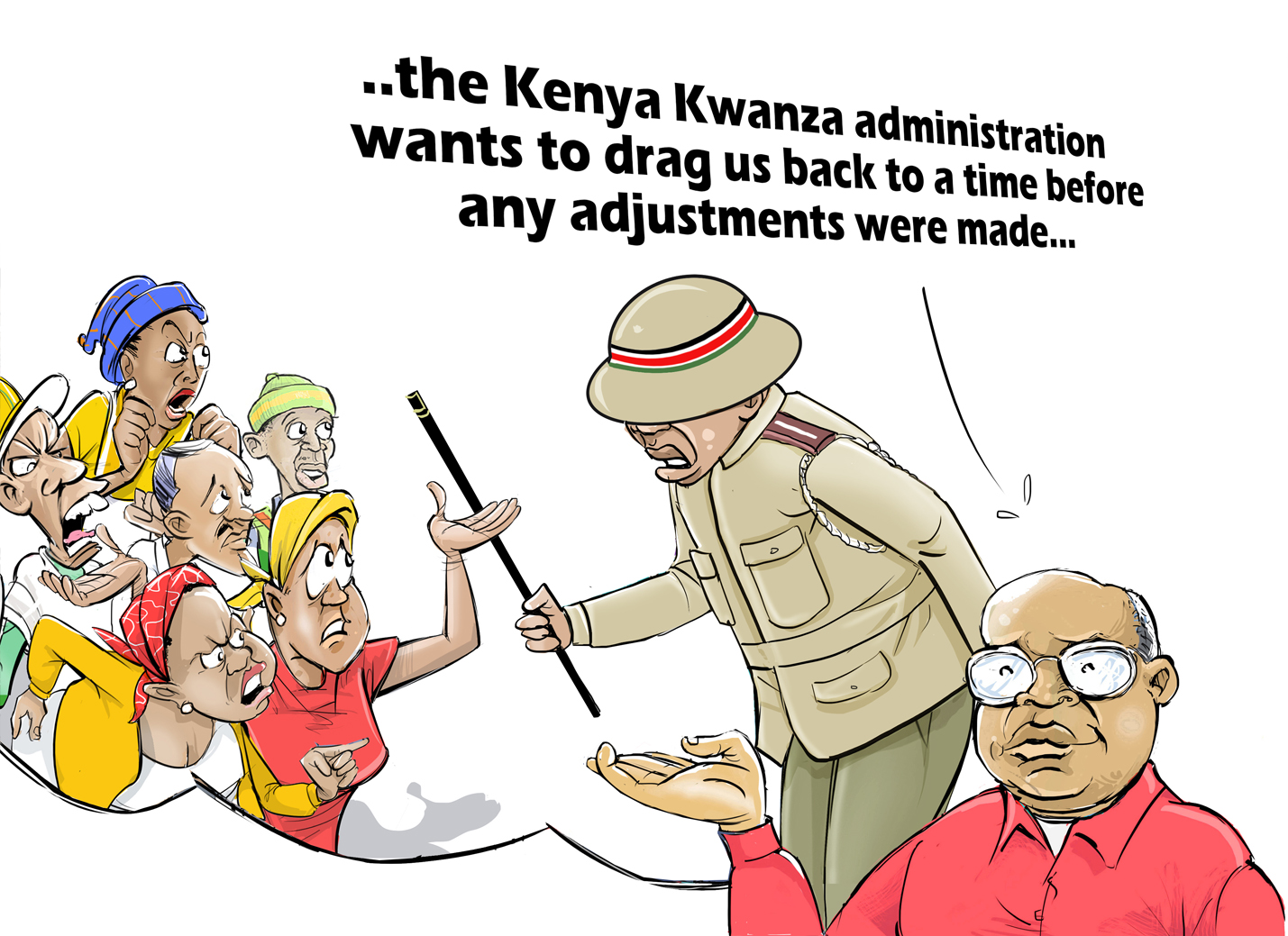

In May 1992, the Kenya section of the International Commission of Jurists recommended the repeal of the Chief’s Authority Act. They said the act was “excessively oriented towards order at the expense of freedom”.
During that conference, which I reported on, emotions were high around repealing the law and its replacement by a bill of rights.
However, the then secretary of the ICJ, Githu Muigai, argued that his colleagues were being short-sighted, and that their views could lead to anarchy.
In the end, the Chiefs Act was never fully repealed, but many of its provisions, particularly those related to traditional chiefs’ powers, were repealed or deleted over time.
Significant changes were made in 1997 as part of the Inter-Parties Parliamentary Group (IPPG) minimum reforms.
Now,
the Kenya Kwanza administration wants to drag us back to a time before any
adjustments were made.
I have tried to imagine what such a world would look like today somewhere in a rural but mysteriously Wi-Fi-enabled village, nestled between a forgotten road and an underfunded dispensary.
We find ourselves in the presence of the legendary chief Madharau bin Chuki. Clad in a khaki uniform two sizes too tight and swinging his rungu like a conductor of democracy’s funeral dirge, the chief still reigns as if the clock froze in 1997, the golden era of unquestioned authority.
“Order is my middle name,” declares Chuki as he inspects a boda boda rider’s shoelaces for signs of subversion. “Freedom is a slippery slope to chaos. Next thing you know, people will want to protest potholes or demand electricity without paying facilitation fees.”
Armed with the full, unrepentant vigour of the unreformed Chief’s Authority Act, Chuki operates like a local deity. His baraza processes all offences from livestock theft to “walking while suspicious”.
There are no lawyers, no evidence, just the chief, his instincts and sometimes, the village gossip network, also known as “the Ministry of Internal Whispers”.
In 2025, while the rest of Kenya debates data privacy and climate policy, this village still has a dusk-to-dawn curfew “for moral hygiene”. Public gatherings of more than three people require a permit signed in triplicate, notarised by the chief’s rooster, a notorious bureaucratic bottleneck, and stamped with the sacred ink of paranoia.
“You think WhatsApp groups are innocent?” asks the chief ominously. “That’s how coups start. Today it’s memes, tomorrow it’s regime change.”
The chief still uses the Preservation of Public Security Act to raid homes suspected of being members of community WhatsApp groups, and claims membership is a prelude to civil unrest. His understanding of “public order” is broad; it includes youth laughing after sunset, women in trousers and bearded men.
“You see, rights are like ugali,” he says. “Too much, and you sleep. My job is to keep the people lean and alert.”
Recently, a young university graduate returned to the village and tried to start a civic education class on constitutional rights. The chief swiftly deployed his elite enforcement unit, three elderly former policemen with whistles and unrelenting suspicion.
They surrounded the youth and asked him to explain Article 37 of the Constitution while hopping on one leg.
When he hesitated, he was ordered to write a 2,000-word apology letter to “the spirit of national cohesion”.
The chief does not acknowledge the IPPG reforms of 1997, the 2010 Constitution or the reality that he is not legally permitted to take people’s chickens whenever he fancies.
Meanwhile, villagers who dare mention devolution are accused of “ideological indiscipline”.
In Nairobi, lawyers, scholars and human rights defenders scratch their heads. How does such a chief still operate with impunity in 2025? Didn’t Kenya move past this? Didn’t Parliament reform the law?
Perhaps. But in the KK administration’s way of thinking, history has taken a sabbatical. Instead, we have a khaki-clad relic of a time when order meant silence, freedom meant suspicion and chiefs ruled like local presidents, immune to time and common sense.
As chief Chuki repeats his mantra, “No freedom before order! No breakfast before allegiance!” one cannot help but wonder if 1997 ever truly ended.














